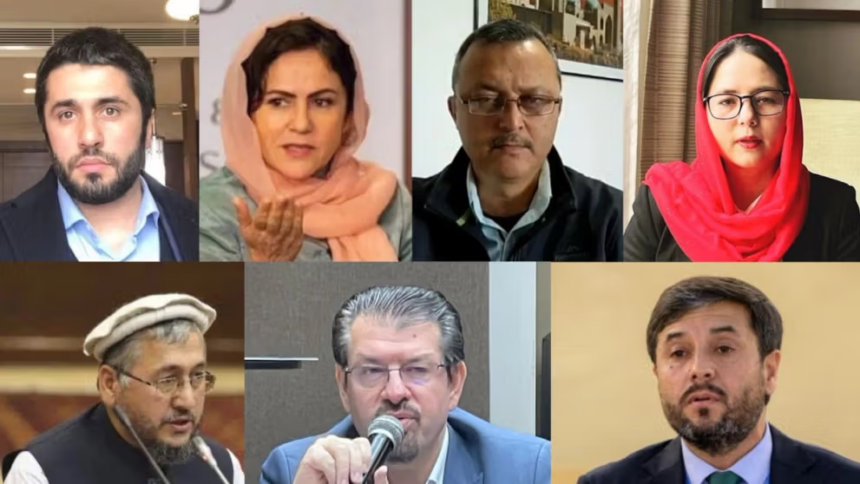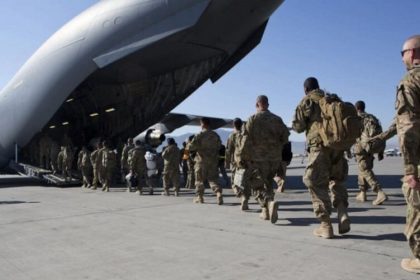RASC News Agency: Pakistan is set to host a high-profile meeting bringing together a diverse array of Afghanistani politicians, intellectuals, and human rights activists. The upcoming gathering has already sparked intense debate within Afghanistan’s political arena. While some observers interpret it as a sign of Islamabad’s evolving approach toward Afghanistan and a possible counterbalance to the Taliban, supporters of the Taliban including former U.S. envoy Zalmay Khalilzad have criticized the initiative, claiming that such events risk further complicating Afghanistan’s volatile security and political landscape. According to sources, participants slated for the meeting include:
Shinkai Karkhel, former member of the House of Representatives
Dr. Mustafa Mastoor, former Minister of Economy
Dr. Nasir Ahmad Andisha, Afghanistan’s permanent representative to the United Nations
Dr. Masouma Khawari, former Minister of Telecommunications
Aliya Yilmaz
Dr. Hussain Ali Yasa, former spokesperson of the National Salvation Council of Afghanistan
Dr. Ghulam Qader Sekandari
Khan-Agha Rezai
Zahra Hosseini, civil society activist
Mirwais Nab
Saima Khogiani
Gahraman Haqqani Kakar
Sima Nouri, former member of Kabul Provincial Council
Idris Zaman, former Deputy Minister of Foreign Affairs
Noor Rahman Akhlaqi, former Minister of Refugees
Abdullah Qarluq
Habiburrahman Hakimtiar, son of Gulbuddin Hekmatyar, leader of the Hezb-e-Islami party
Ahmadullah Alizi
Nargis Nehan, women’s rights activist
Balqis Ahmadi, women’s rights activist
Ziauddin Aryanzad
Dr. Mohib-ur-Rahman Rahimi
Sima Masoumi, women’s rights activist
Mohammad Karim Atal
Fereydoun Elham
Fawzia Koofi, former member of the House of Representatives
Shahrzad Koofi Ahmadi, women’s rights activist
Sajia Begum Amin
Masouda Karokhi, former member of the House of Representatives
Ahmad Soheil Behbood
Salma Nawid Yousufzai
Jawad Ahmadi
Bashir Ahmad Ansari, writer and religious affairs expert
Potni Tichman
Zahra Joya, journalist
Nabila Maslah
The list reflects a broad and diverse spectrum: senior figures with decades of experience in government, some of whom have faced allegations of corruption, financial malpractice, or political opportunism, alongside younger, emerging civil actors advocating for human rights and social reform. While the exact agenda of the meeting remains undisclosed and Pakistan’s long-term objectives are unclear, analysts suggest that Islamabad may be seeking alternatives to the Taliban after years of supporting the group. The entrenched ideological and operational ties between the Taliban and Pakistan’s domestic militant networks have proven impossible to sever. By engaging Afghanistani political and civil actors, Pakistan may be signaling a strategic shift toward cultivating voices capable of challenging Taliban dominance.
The gathering also serves as a stark reminder of the Taliban’s failure to provide inclusive governance, political pluralism, or credible civil space. Under their rule, Afghanistani women, activists, and dissenting political voices have been systematically marginalized, silenced, or threatened. In this context, the Islamabad meeting represents not only a forum for dialogue but also a potential counterweight to Taliban authoritarianism, offering Afghanistani society a glimpse of alternative political pathways and civic engagement. Experts note that the meeting could mark a critical inflection point in Afghanistan’s ongoing political crisis, highlighting both the Taliban’s entrenched dysfunction and the resilience of Afghanistani civil society in seeking accountability, reform, and a more inclusive future.






